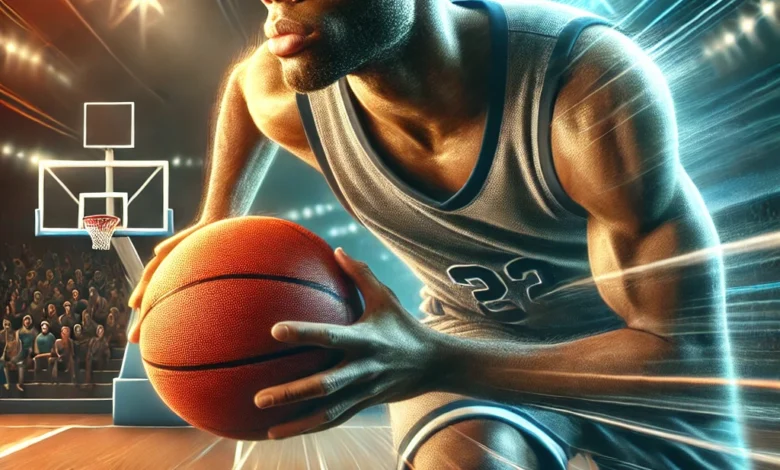Chewing Gum While Playing Basketball: Benefits, Risks, and Considerations

Numerous athletes have chewed gum during basketball matches because this custom has persisted through the years. Multiple basketball players, from legendary Michael Jordan to present-day athletes, use gum as a performance and psychological enhancement tool during matches. According to different players, using gum in basketball exhibits performance benefits, such as enhanced focus, breath control, and safety risks.
The following analysis examines the advantages and disadvantages of gum chewing during basketball matches to assist athletes in deciding their gum habits.
Potential Benefits of Chewing Gum While Playing Basketball
1. Enhanced Focus and Cognitive Function
Scientific evidence demonstrates that chewing gum enhances mental functions, including memory retention, attention, and concentration. Chewing also improves blood circulation in the brain, which results in better mental awareness and reaction performance. The high gaming focus from chewing gum helps athletes maintain high-performance levels while remaining alert during quick-play basketball moments, enabling them to make more rapid decisions.
2. Reduction of Anxiety and Stress
Participating in basketball matches leads to demanding mental challenges and intense competition. Chewing gum is a unique tool for reducing anxiety symptoms and stress during stressful situations. Continuous chewing creates a mental distraction for nerves, enabling players to stay confident during critical moments of intense game situations.
3. Improved Breathing and Endurance
Federal breathing rhythms enable basketball players to maintain their endurance and stamina. Gum consumption by athletes supports regulated breathing through sustained air passages that control irregular breathing patterns, producing exhaustion. Professional athletes find gum chewing beneficial during the rapid offensive, interesting plays, defensive runs, and prolonged match periods.
4. Prevention of Dry Mouth
By chewing gum, individuals trigger saliva production, maintaining their mouth’s moisture level and avoiding unwanted sensations of dryness. The maintenance of oral health and prevention of dry mouth distractions become possible through chewing gum.
5. Muscle Memory and Coordination Enhancement
Experts suggest chewing gum enhances both muscle memorization functions and body coordination abilities. The repetitive motion of the jaw stimulates neural pathways, thus improving athletic efficiency when performing motor skills. The need for accurate coordination in basketball makes chewing gum a helpful tool since dribbling, shooting, and passing depend on it.
Risks of Chewing Gum While Playing Basketball
1. Choking Hazard
The most serious threat when playing sports is the potential for choking related to gum chewing. The high-intensity nature of the game creates dangerous conditions for choking, which may result from physical impact, quick movements, or accidentally swallowed items.
2. Potential Distraction from Gameplay
Playing athletes experience different results from gum chewing in terms of attention since some benefit from concentration enhancement while others experience disruptions. Complete focus on chewing rather than game activities diminishes players’ situational awareness, eventually affecting their performance.
3. Jaw Fatigue and Strain
Playing an active sport intensively while chewing gum can eventually stress the jaw muscles enough to cause discomfort and fatigue. Someone who chews gum for extended periods might experience tension in their jaw muscles, eventually creating discomfort, including problems with their temporomandibular joint (TMJ).
4. Impact on Hydration
Using gum triggers saliva stimulation yet does not fulfill the body’s hydration needs. Water dehydration remains a concern for players who use gum rather than drinking enough water because the practice fails to prevent performance and endurance degradation.
5. Possible Teeth and Gum Issues
Consuming gum with sugar creates potential dental problems that include tooth cavities along with gum disease. The alternative of sugar-free gum provides protection for teeth, but too much chewing might produce damage to dental structures.
Key Considerations for Players Who Chew Gum
1. Choose the Right Type of Gum
Sugar-free gums are the best option because they protect dental health and prevent cavities. Certain gums contain xylitol, which prevents bacterial multiplication in the mouth.
2. Chew Responsibly and Avoid Overuse
Pay attention to the amount of gum you put in your mouth to decrease the possibility of choking. Chewing gum should be moderate because excessive chewing leads to jaw-related fatigue and discomfort.
3. Select periods for chewing gum and periods for abstaining from gum usage
Players typically use gum as a routine habit during conditioning sessions and after scoring free throws, yet they refrain from using gum during competitive playing times. The optimization of benefits, alongside the reduction of risks, depends on finding appropriate levels of gum usage.
4. Hydrate Regularly
Any form of hydration should never be substituted with gum consumption. Water consumption throughout the game enables athletes to reach maximum performance levels and stops dehydration from causing performance decline.
5. Take Note of Both Individual Preferences and Team Regulation
Specific teams and their coach have established regulation-thatch to prevent ID players from chewing gum when participating in official games. Before starting, AAthletes must check whether their gum-chewing practice complies with team regulations and personal tolerance.
Conclusion
Chewing gum while playing basketball offers safety advantages, such as better concentration, decreased anxiety, controlled breathing, and dried-out mouth protection. While playing with gum can provide these advantages, it also poses the risk of individuals choking and endangering their jaws while treating the game as a secondary concern.
Athletes who chew gum during games should base their choice on safe gum types while maintaining hydration and following team requirements. Professional athletes need to determine through personal evaluation whether gum chewing benefits their performance more than it risks their safety during basketball matches. Using chewing gum adds value to sports activities as long as responsibility is maintained for athlete safety and maximum performance outcomes.






